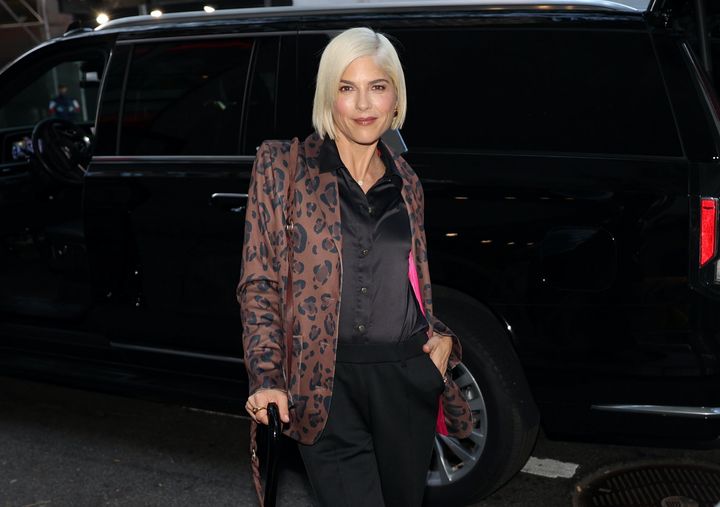
Selma Blair, who was diagnosed with multiple sclerosis in 2018, is opening about her frustrating experience with gender bias in the health care system.
While recently appearing on NBC’s “Meet the Press” on Sunday, the actor spoke about a staggering moment in her MS journey when a doctor dismissed her “unbearable” pain and discomfort by suggesting that she find a boyfriend.
“I just cried,” Blair, 51, recalled of her response to the insensitive comment. “I had no capability to process. ‘What am I supposed to do with this information?’ I knew the pain was real. I thought it was. But I did start to convince myself, ‘You’re overly sensitive. There’s nothing wrong with you. Get it together, you lazy, lazy whatever.’”
The “Cruel Intentions” actor shared that she suffered “so much medical trauma” early on due to unfair treatment from doctors during her childhood.
“It was a gender bias, a lot of it, because there would be a boy in my grade that would go in for the exact same chronic headache and fever, and he is in surgery and an MRI within the week,” she explained.
The “Hell Boy” star added: “I was never given an MRI even though I always had headaches and fevers and balance [problems]. But they just said, ‘Oh, just dramatic.’”

Jose Perez/Bauer-Griffin via Getty Images
After having her symptoms shut down by doctors for years, she recalled being “relieved” when she was finally diagnosed with MS.
“I was relieved I finally had something that could be understood and treated,” she told the show’s moderator, Kristen Welker.
As one of Hollywood’s biggest advocates for chronic disease and disability rights, Blair went on offer advice to medical professionals who are treating patients with chronic symptoms.
“I really wish they would listen,” she said after pointing out that “nothing was taken seriously.”
The actor, who has been in remission since 2021, added: “I want doctors to listen, keep things in mind. And why so afraid of an MRI on a woman?”
Back in 2019, Blair echoed similar frustrations over her experiences with dismissive doctors while appearing on “Good Morning America.”
“I was really struggling with, ‘How am I gonna get by in life?’” she said at the time. “And not [being] taken seriously by doctors, just, ‘Single mother, you’re exhausted, financial burden, blah, blah, blah.’”
